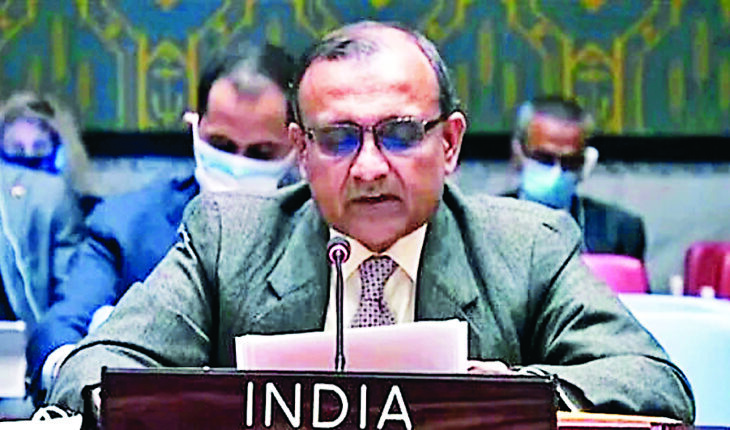Anurima explores why India’s siding to its self-interest is the best foreign policy measure
Is India siding with Russia by abstaining from voting in the United Nations Security Council against Russia’s action in Ukraine? The answer is no. The reason behind abstinence is not Russia’s pressure on India but India’s traditional approach of taking middle-path diplomacy. India’s abstained from voting but expressed displeasure over Russia’s actions. This has also been seen in T.S. Trimurthi’s statement over Israel-Palestine conflict in May 2021. India has shown its capability of being strategically autonomous.
Balancing two extreme poles has been the India’s foreign policy since the nonalignment movement (NAM). It has become a salient feature of the country’s diplomacy in the last decade. In the world of taking sides, India sides to its self-interests. India has been balancing the cold war poles in the new millennia very well. A popular example is the simultaneous S-400 deal with Russia and Quadrilateral Security Dialogue (QUAD/QSD) with the USA.
On the other side of the coin, India’s balancing approach shows its strategic vulnerability, which is created by a world where its closeness with the USA is at the time when America’s power dynamics is facing degradation, simultaneous to rising China’s power on a global foot. India has been increasing its closeness with America for Indo-Pacific security through QUAD. Since Biden’s foreign policy sets to counter China. Therefore, everything that the USA plans against China is in India’s interest.
India’s closest friend on the continent is Russia is an undeniable fact, the fact has become firm since the USA left Afghanistan. The turmoil between USA-Russia relations is not just bad for India but for the world. The implication ranges from economy to energy but one grave concern is the weakening of multilateral international institutions.
Pertinent dangers to a multilateral institution
The United Nations has been mocked around the world for being a toothless tiger. The comparison between the textbook United Nations and real-life United Nations is infamous. Back in 1945, the global body was established to uphold peace and development in the world, six weeks later America bombarded Japan. From that point, reforms are due. The immediate problem in the current scenario is the veto system of the Permanent five (P5) countries at UNSC. It has been used for personal interests rather than “peace and development”, For example, China did block sanctions against Pakistan-based terror group founder Jaish-e-Mohammed Masood Azhar for a decade before it had to step aside in 2019 under intense international pressure, China is one of the five permanent members of the UNSC and has been using its veto power to block India’s efforts to become a permanent member of the body, The US has used its veto power 43 times against draft Security Council resolutions pertaining to Israel, and in the current scenario, Russia saved itself in UNSC through a veto. This is eroding the significance of the UNSC. Therefore, the immediate reform should be to reform the voting system among P5 members of the UNSC.
The trend of unilateral sanctions and bilateral trade agreements is also making multilateral institutions like the World Trade Organization (WTO) look insignificant. The Ukrainian war crisis stands the best time for the UN to rewrite rules and reform these organizations.
Scope for India
With India’s appreciable balancing of the extremes through diplomacy, the country has a scope to play a leading role, not only in solving the war crisis but also for a new multilateral world. This dystopia may yield a seat for India at the reformed United Nation Security Council.
Anurima is a student of Masters in International Relations. Views are personal.






